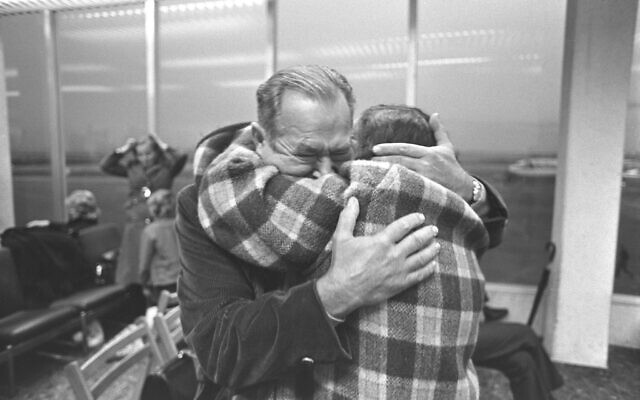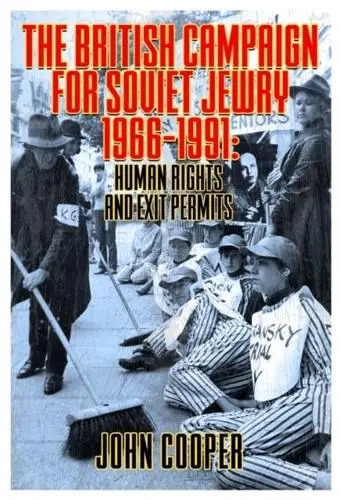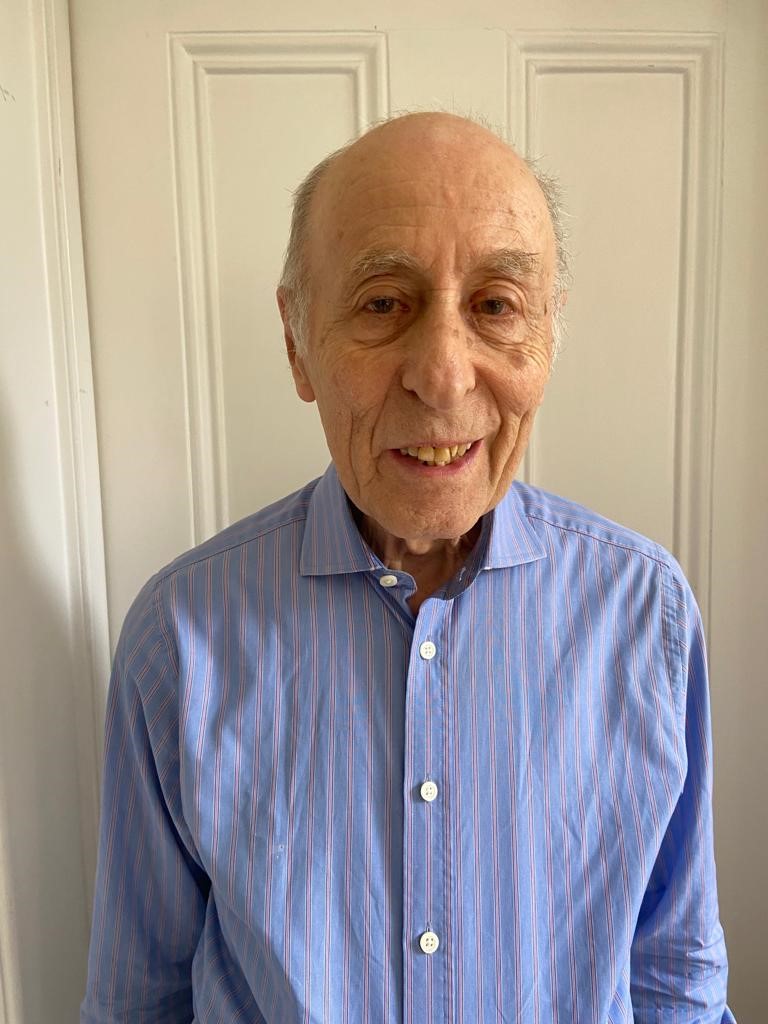OPINION: The British and the exodus of Soviet Jewry
Dr. John Cooper examines the role Anglo-Jewry played in the campaign to rescue almost 2 million Soviet Jews

Events in Russia and the Ukraine are in the news daily, but a few years ago the Cold War and the dramatic circumstances in which a vast number of Jews left the Soviet Union were fast fading from memory.
When I told someone in their twenties, who was a committed younger member of the community, that I was writing this book, he exclaimed that he thought that only American Jews had accomplished the exodus of Jews from Eastern Europe and that British Jews had little to do with it. My book is a small attempt to jolt this loss of memory.
By 1980, the Soviet Union was becoming a much more educated society than it was before the Second World War and there was a huge influx of more qualified individuals into the labour market. But after 1945 under Stalin and Khrushchev, Jews were being squeezed out of positions in the elite – the Communist party, the security services and the Foreign Ministry, though they were still concentrated in large numbers in scientific institutions and the free professions.

Synagogues were being closed, the teaching of Judaism and Jewish culture was forbidden, and there was rising antisemitism. Two groups tended to develop dissenting views: scientists and writers, among whom there were a large group of Soviet Jews.
As early as 1952, the Israeli government set up a secret organization, the Lishka, for the in-gathering of the remnants of Russian Jewry, whom they hoped would help to consolidate the state. By fortuitous circumstances, they were aided by the student revolt in 1968 and the Women’s liberation movement.
Soon Jewish students formed the Universities Committee for Soviet Jewry which staged marches on to the Soviet embassy in London and organized a parliamentary motion which 340 MPs signed.
Following this in 1971, Barbara Oberman founded the Women’s Campaign for Soviet Jewry, better known as the 35’s, which was soon joined by Doreen Gainsford. Attractive young Jewish women demonstrating in the streets and being mentioned in the national newspapers and the BBC was something new in Anglo- Jewish politics; and somewhat resented by the somewhat sleepy male dominated Board of Deputies.

In a vain attempt to curb the activity of the students and the women, the Board established the National Campaign for Soviet Jewry which acted as an umbrella organization. At this point in the 1970s, Leonid Brezhnev, the Soviet leader, wanted the Western powers to recognize the post-War boundaries of the Soviet Union and its satellites. In exchange, the Western leaders demanded more cultural and educational exchanges and human rights, including the right to emigrate. In broad terms this was agreed by the Helsinki Final Act which was signed in 1975.
The Soviet Jewry campaign now proceeded under the two slogans of “Let My People Go” and human rights; and it was the human rights slogan which was wonderfully exploited first by Doreen Gainsford in trips to Europe and then by Rita Eker and Margaret Rigal, the new leaders of the 35s, in frequent exchanges with Margaret Thatcher, the Prime Minister.
With Gorbachev’s accession to power in 1985, the stalemate seemed to continue until Anatoly Shcharansky’s release in February 1986, but even so there was little movement on the Soviet side.
What made Gorbachev change his mind and permit almost two million Soviet Jews to emigrate, when he still seemed to be working with his state security apparatus and there was the occasional antisemitic barb?
He still seemed reluctant to let Jews out of the country, as he needed their technological and managerial talent. Yet he also believed in some form of the rule of law. Was it the nuclear explosion at Chernobyl and the financial cost of rectifying the damage? Was it his slow and muddled approach to instituting a free market or his inability to control nationalist passions among the Soviet Union’s minorities?
How effective was the international campaign for Soviet Jewry and how successful was the issue of human rights? What part did Anglo-Jewry play in the overall campaign? I try to address these and other issues in my book and focus on some of the forgotten leaders of the campaign and their foot soldiers.
- Dr John Cooper is the author of “The British Campaign for Soviet Jewry 1966-1991: Human Right and Exit Permits” (2023).

Thank you for helping to make Jewish News the leading source of news and opinion for the UK Jewish community. Today we're asking for your invaluable help to continue putting our community first in everything we do.
For as little as £5 a month you can help sustain the vital work we do in celebrating and standing up for Jewish life in Britain.
Jewish News holds our community together and keeps us connected. Like a synagogue, it’s where people turn to feel part of something bigger. It also proudly shows the rest of Britain the vibrancy and rich culture of modern Jewish life.
You can make a quick and easy one-off or monthly contribution of £5, £10, £20 or any other sum you’re comfortable with.
100% of your donation will help us continue celebrating our community, in all its dynamic diversity...
Engaging
Being a community platform means so much more than producing a newspaper and website. One of our proudest roles is media partnering with our invaluable charities to amplify the outstanding work they do to help us all.
Celebrating
There’s no shortage of oys in the world but Jewish News takes every opportunity to celebrate the joys too, through projects like Night of Heroes, 40 Under 40 and other compelling countdowns that make the community kvell with pride.
Pioneering
In the first collaboration between media outlets from different faiths, Jewish News worked with British Muslim TV and Church Times to produce a list of young activists leading the way on interfaith understanding.
Campaigning
Royal Mail issued a stamp honouring Holocaust hero Sir Nicholas Winton after a Jewish News campaign attracted more than 100,000 backers. Jewish Newsalso produces special editions of the paper highlighting pressing issues including mental health and Holocaust remembrance.
Easy access
In an age when news is readily accessible, Jewish News provides high-quality content free online and offline, removing any financial barriers to connecting people.
Voice of our community to wider society
The Jewish News team regularly appears on TV, radio and on the pages of the national press to comment on stories about the Jewish community. Easy access to the paper on the streets of London also means Jewish News provides an invaluable window into the community for the country at large.
We hope you agree all this is worth preserving.





















